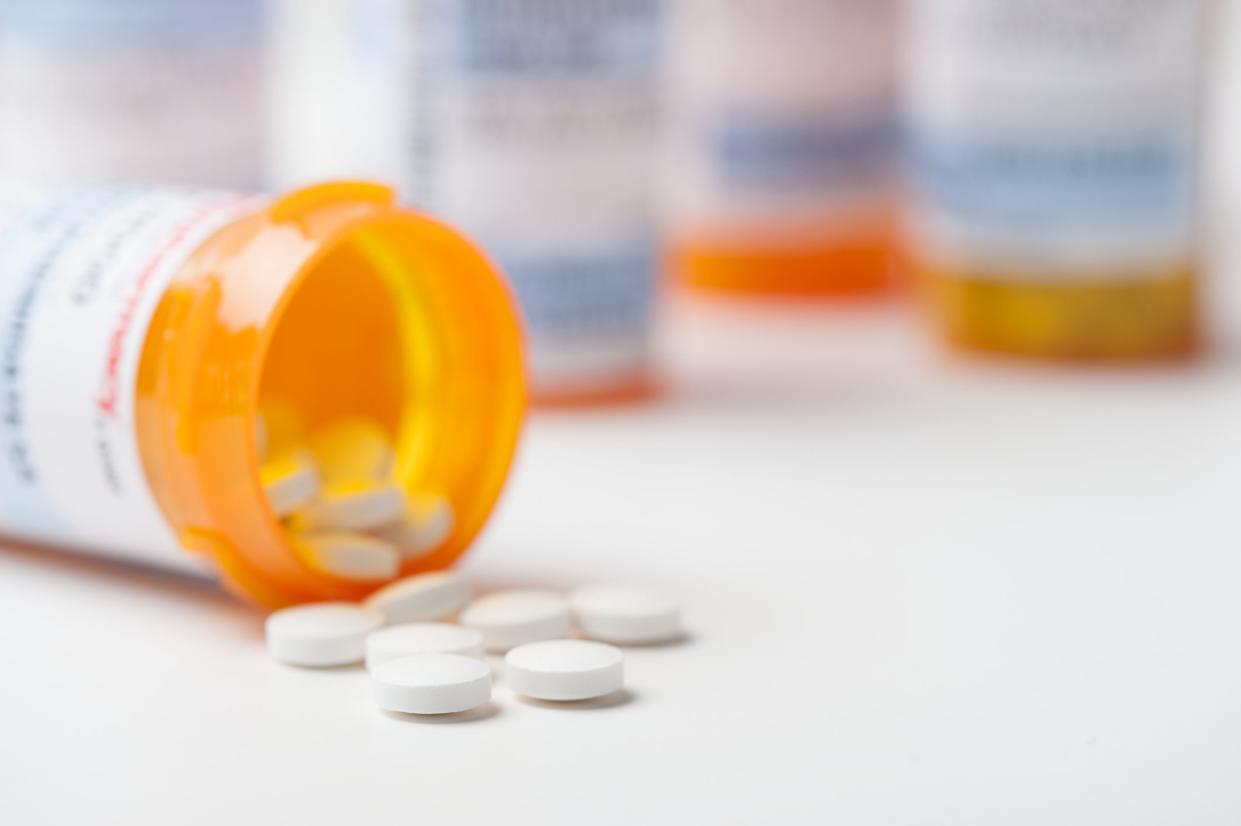Can Cycle Syncing Bring a Healthy Balance to Your Life?
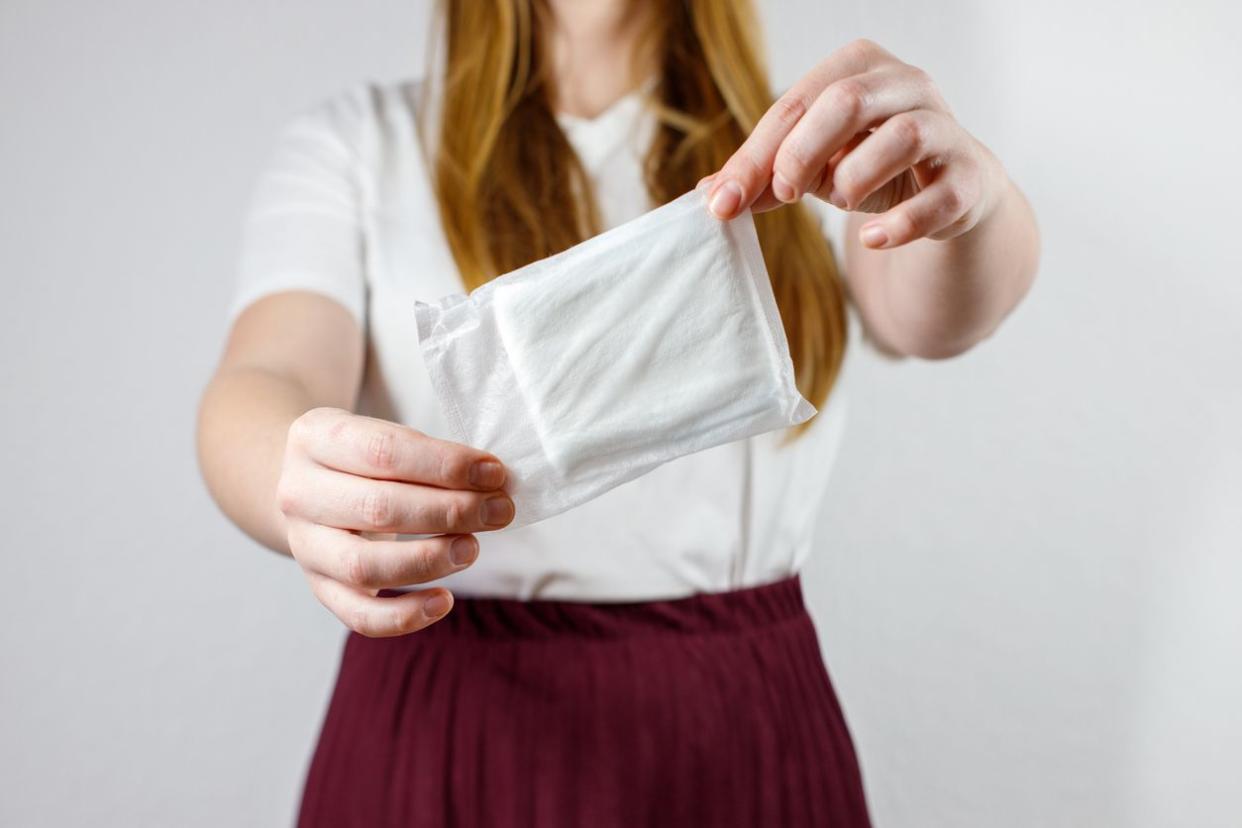
You’re probably well aware of the uncomfortable symptoms leading up to (and during) that time of the month. What if you could make simple changes to feel better not just while on your period but throughout all menstrual cycle phases? That’s where cycle syncing comes in.
Cycle syncing involves aligning your lifestyle habits (like how you exercise and what you eat) with the different phases of your menstrual cycle.
We’ll break down what cycle syncing is, how it might help with hormones during the menstrual cycle, how to do it and if optimizing your lifestyle around your period can bring balance to your overall health.
What is Cycle Syncing?
Originally coined by Alisa Vitti, cycle syncing is changing your lifestyle habits — like your exercise routine, sleep schedule and nutrition — to match the different phases of the menstrual cycle.
The idea is that tracking hormonal changes during the menstrual cycle can help you better manage your health and alleviate symptoms.
As you probably know, the menstrual cycle is your body’s process of preparing for possible pregnancy, with regular periods indicating healthy bodily function.
You’re not imagining that you’re on an emotional rollercoaster during (or before or after) your period. The ups, downs and loop-de-loops of how you feel at different stages of the menstrual cycle are thanks to hormonal changes.
These hormonal fluctuations (mostly the hormones estrogen and progesterone) affect your appetite, energy levels, mood, self-esteem and so much more.
(Related: Depression Medications: A Complete Guide)
Understanding the Phases of Your Menstrual Cycle
Lasting 28 days on average, there are four phases of the menstrual cycle:
Follicular phase
Ovulatory phase
Luteal phase
Menstruation
During the follicular phase, which lasts almost 14 days, hormone levels start to rise.
Estrogen levels peak when ovulation starts, while progesterone levels continue to rise over the next one to three days.
Then, in the luteal phase (if the egg released during ovulation isn’t fertilized), hormone levels decrease and the menstrual cycle starts again.
How to Cycle Sync
You can track your cycle using a paper calendar or a digital app. But just know it can take a few months to identify how long each phase and cycle lasts.
Also, 28 days is just an average — anything from 21 to 35 days is considered normal. And some people are irregular, meaning their cycles won’t be the same number of days each month. Additionally, while hormonal birth control suppresses the normal menstrual cycle, you can still experience hormonal shifts while taking it.
Once you have your cycle down, you can implement different exercises, foods and lifestyle habits to optimize how you feel during each stage. We’ll go over these below.
(Related: Common Causes of Social Anxiety)
Benefits of Cycle Syncing
If you feel like your period rules your life, cycle syncing could have benefits. You check the weather before you leave the house, so why not check your hormone levels?
While there aren’t too many scientific studies supporting cycle syncing and its benefits, tracking your period might be helpful.
Some believe cycle syncing benefits include:
Feeling more mindful about your cycle or in tune with your body
Relieving premenstrual syndrome (PMS) symptoms
Feeling more energized or rested
Help achieving health goals
We cover the benefits of cycle syncing for different aspects of your health below, from weight management to nutrition and more.
Cycle Syncing Weight Loss
If you and your healthcare provider have discussed weight loss goals for your health, you might wonder whether cycle syncing can play a role in weight management.
Weight gain can be related to the menstrual cycle for many women, thanks to increased appetite and food cravings — but is there any fact to cycle syncing weight loss?
In research looking at women who tracked their cycles using a digital tracking app, many had a body mass index (BMI) in the normal range, while one-third had excess weight or obesity.
The data found no significant differences in total cycle length or phase variations in women with higher BMIs.
Though your menstrual cycle may not affect weight gain or loss, weight changes can impact your menstrual cycle. Still, that’s not to say cycle syncing weight loss will definitely happen once you start tracking your period and adapting lifestyle habits.
Cycle syncing can help you figure out the best habits based on the different phases of your menstrual cycle. In that sense, it might help as part of a holistic approach to weight loss.
Your provider can help you come up with a personalized weight management plan that may include healthy lifestyle changes and prescribed weight loss medications.
Cycle Syncing and Working Out
Even when it’s not that time of month, you might struggle to get motivated to exercise. Don’t be too hard on yourself. It’s natural to be low-energy during certain menstrual phases — or for other reasons, like a packed schedule with little time to rest.
But since hormone levels fluctuate as you cycle through the phases, cycle-syncing workouts could help align your moods and energy levels.
Exercise During Menstrual and Luteal Phases
During the luteal and menstrual phases — when energy levels are low — light movements like relaxing yoga poses might be best. A small study of women with PMS found that yoga was more effective at relieving PMS symptoms than aerobic exercise.
Looking for more luteal phase workouts? Low-intensity cardio is great when hormone levels are lower. For instance, walking for weight loss is an easy and effective way to bump up your daily movement without breaking too much of a sweat.
Exercise During Follicular and Ovulation Phases
You might feel more up for workouts like high-intensity interval training (HIIT) or strength training during the follicular and ovulation phases when your hormonal and energy levels rise.
The point is, working out with your cycle lets you adapt to your body’s natural rhythm. You don’t have to go hard when you don’t feel like it — but when you have more of a pep in your step, you can lean into the burst of energy.
How Cycle Syncing and Food Connect
If you ever crave chocolate or salty foods like chips, you know your period’s probably coming up. There’s a reason you suddenly want certain foods — and yep, it’s (partly) to do with your hormones.
Eating for your cycle can mean focusing on getting key nutrients your body needs during each phase.
Nutrition Cycle Syncing for Luteal and Menstrual Phases
You might notice food cravings or an increased appetite right before or during your period. This means you’re probably in your luteal phase and experiencing changes in estrogen and serotonin levels (hello, mood swings).
Wondering what to eat during the luteal phase? Foods that produce serotonin are good choices. This includes leafy greens and quinoa, as well as magnesium-rich foods that fight fatigue and low libido, like dark chocolate and pumpkin seeds.
Cramping, fatigue and irritability are common during menstruation. Eating iron-rich foods like leafy vegetables and red meat can replace iron lost from bleeding.
Nutrition Cycle Syncing for Follicular and Ovulation Phases
Wondering what to eat during the follicular phase or while ovulating?
Focus on protein when choosing ovulation and follicular phase foods. Protein can help support weight loss and muscle building while providing fuel for higher-intensity workouts.
Sleep and Your Menstrual Cycle
Cycle syncing is about more than just nutrition, exercise and menstrual cycles. Tracking the different phases of the menstrual cycle might also improve your sleep.
During the luteal phase, sleep quality can take a downward turn. Some research also suggests a connection between light exposure (think sunlight or artificial light from your phone) and the menstrual cycle phases.
Women tend to have shorter circadian periods than men — the sleep-wake cycle that responds primarily to lightness and darkness — which may be due to hormonal changes. However, evidence isn’t conclusive on the effects of periods on sleep in women.
While your period may or may not affect your sleep schedule, sleep and weight loss are undoubtedly connected. So cycle syncing could be beneficial for both shut-eye and weight management.
Does Cycle Syncing Bring a Healthy Balance?
Cycle syncing is becoming more popular, and it may help some women on their health journeys. But does adjusting your lifestyle habits to your menstrual cycle phases result in improved health or weight loss?
Here’s the bottom line:
Cycle syncing might have some wellness benefits. The holistic approach aligns daily activities — such as nutrition, physical activity and weight management — with the different phases of the menstrual cycle to optimize health and well-being.
More research is needed. While cycle syncing is growing in popularity, research is inconclusive on how effective it is for health, especially in terms of weight loss.
Do what works for you. Everyone’s weight loss and health journeys are unique, and some people have irregular cycles. With this in mind, it’s important to listen to your body’s cues, adjust cycle syncing practices accordingly and consult a medical professional with questions or concerns.
Cycle syncing can play a positive role in women’s health, from simply tracking periods to supporting weight loss journeys. Some may find syncing lets them be more in tune with their bodies or choose to use it as another tool to reach their health goals.
Want help with weight management today? Fill out our quick online questionnaire, and we’ll connect you with a healthcare provider who can create a personalized treatment plan based on your needs and goals.
This article originally appeared on Hers.com and was syndicated by MediaFeed.org.
More from MediaFeed:
5 Ways Drinking Water May Help You Lose Weight
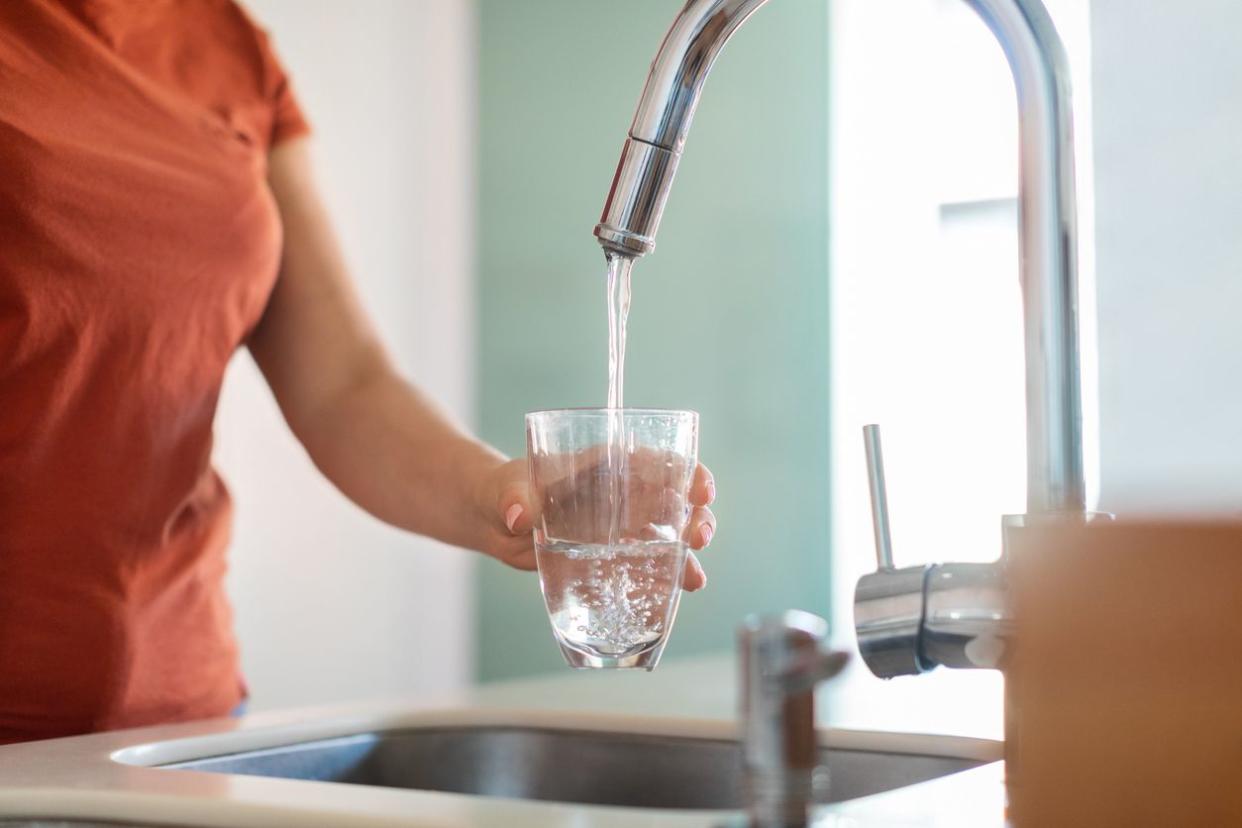
Does drinking water help you lose weight? Believe it or not, it can. While this might sound too good to be true, there’s some solid science behind it.
But it’s not quite as simple as downing a glass of water or two.
Read on to learn how drinking water can help you lose weight, when you should drink it and how much water you should be aiming for.
Prostock-Studio/istockphoto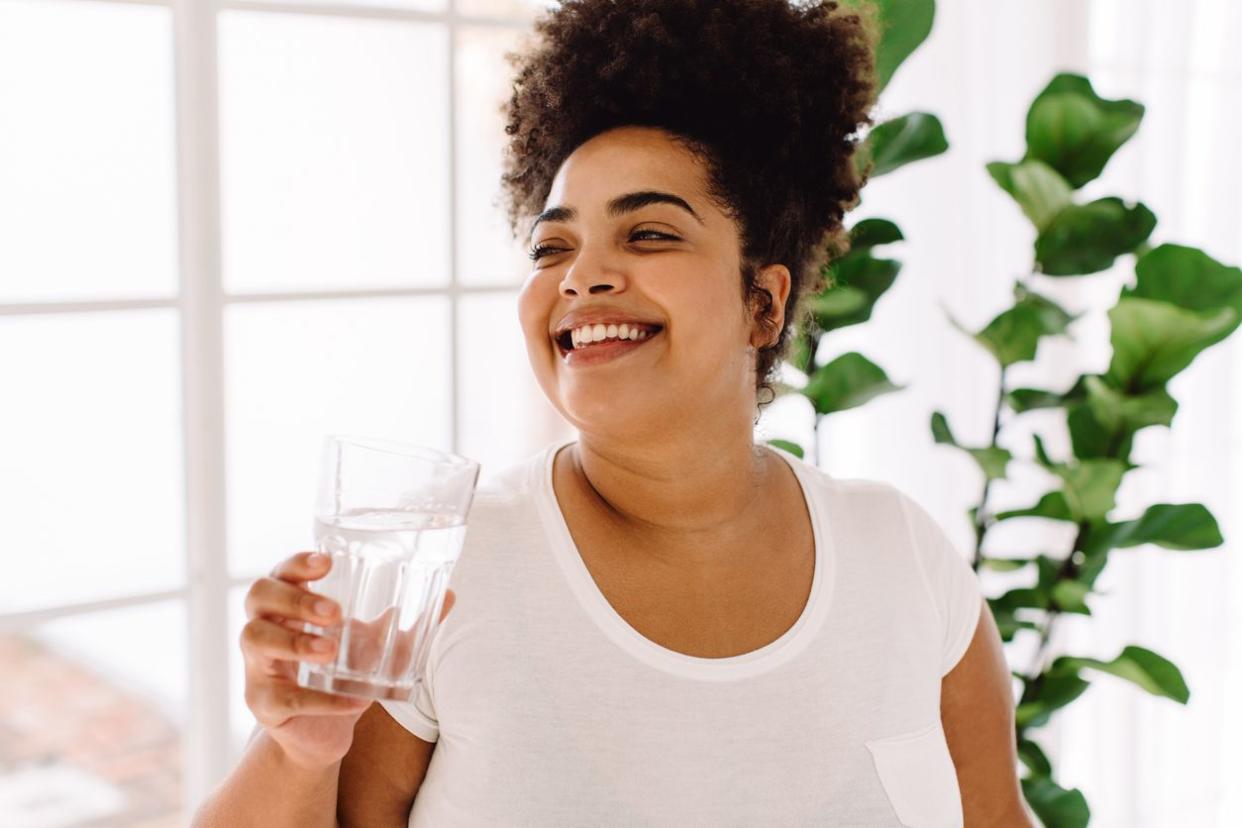
Yes, drinking water can help you lose weight. Research shows it can suppress appetite, stimulate metabolism, boost fat oxidation, reduce liquid calories and make exercising easier.
A 2014 study had 50 female participants with overweight drink roughly 51 ounces on top of their usual daily water intake. This was divided into about 17 ounces a half-hour before breakfast, lunch and dinner. Participants drank the extra water for eight weeks.
At the end of the experiment, their body weight, body mass index (BMI), body fat and appetite had all decreased.
More recent research has had similar findings. A 2022 review of studies concluded that “preloading water” — drinking water before meals — can promote weight loss.
More specifically, drinking about 17 ounces before sitting down to eat may improve weight loss by two to five pounds over three months. Not bad for the humble glass of water.
So, does drinking a lot of water help you lose weight? It looks like it can!
But why does water help you lose weight, and how much water do you need to drink to lose weight? Read on for answers.
(Related:Ozempic Vs. Metformin)
:JLco - Julia Amaral/istockphoto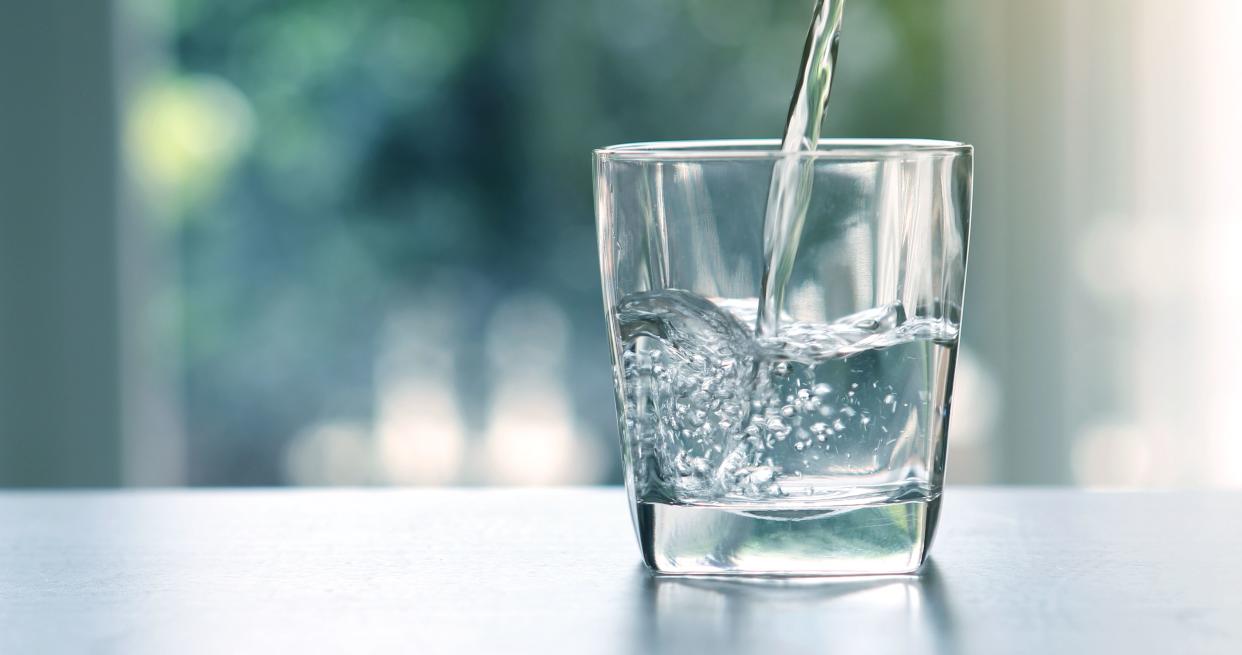
It’s clear that drinking more water can lead to weight loss. But how does water help you lose weight, exactly? It works in a handful of ways.
pinkomelet/istockphoto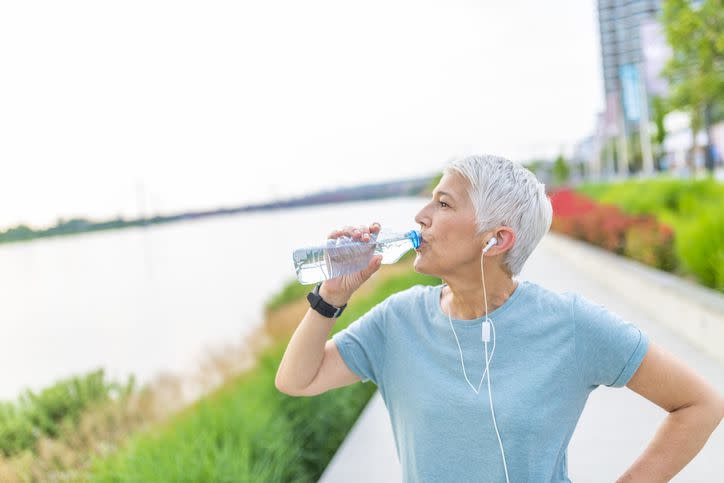
Our brains are clever, complex things, but they often mix up the signals for thirst and hunger. When drinking more water, you’re less likely to feel “hunger” that’s actually just dehydration.
Water may also impact hunger hormones, including:
Ghrelin. This is the hormone that signals hunger to the brain.
Leptin. Leptin is an appetite-suppressing hormone.
Insulin. When insulin is imbalanced, you might feel hungry.
Cholecystokinin. This hormone stimulates the digestion of protein and fat.
Glucagon-like peptide-1. Also called GLP-1, this hormone contributes to feeling full.
In simple terms, drinking more water can suppress appetite while helping you feel fuller and more satisfied at meal times. This can lead to eating less, promoting weight loss.
For example, a 2021 study on people with type 2 diabetes found that drinking about 34 ounces of water a day before meals led to eating fewer calories and less fat. Over eight weeks, this resulted in a lower BMI, a smaller waist circumference and greater weight loss compared to the control group who didn’t drink any water before meals.
Drinking water also seemed to reduce levels of copeptin, a protein that — in high levels — is linked to a larger waist circumference, elevated blood pressure, high BMI and obesity.
dragana991 / istockphoto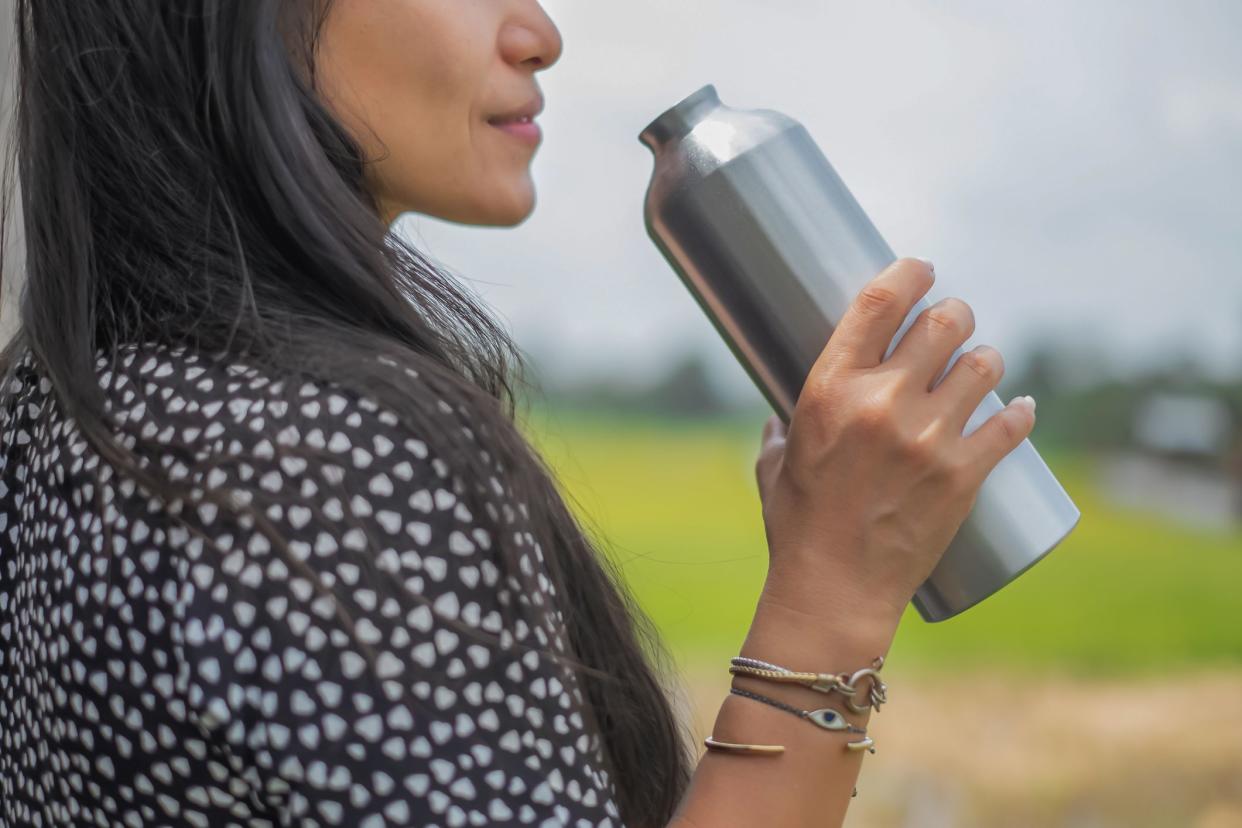
Does water increase metabolism? Again, it sounds like wishful thinking, but the science is there.
Water may boost thermogenesis (heat production) in the body. This, in turn, increases your metabolic rate, providing you with more energy to move and burn off excess weight.
A small 2003 study with 14 participants found drinking around 17 ounces of water increased metabolic rate by 30 percent. The effect started kicking in 10 minutes after drinking water and reached its peak in 30 to 40 minutes.
In absolute terms, the number of calories burned by doing this wasn’t too great, but on a weight loss journey, every bit can matter. Drinking colder water, it seems, burns more calories, because of the energy that needs to go into heating the water up.
Kanawa_Studio/istockphoto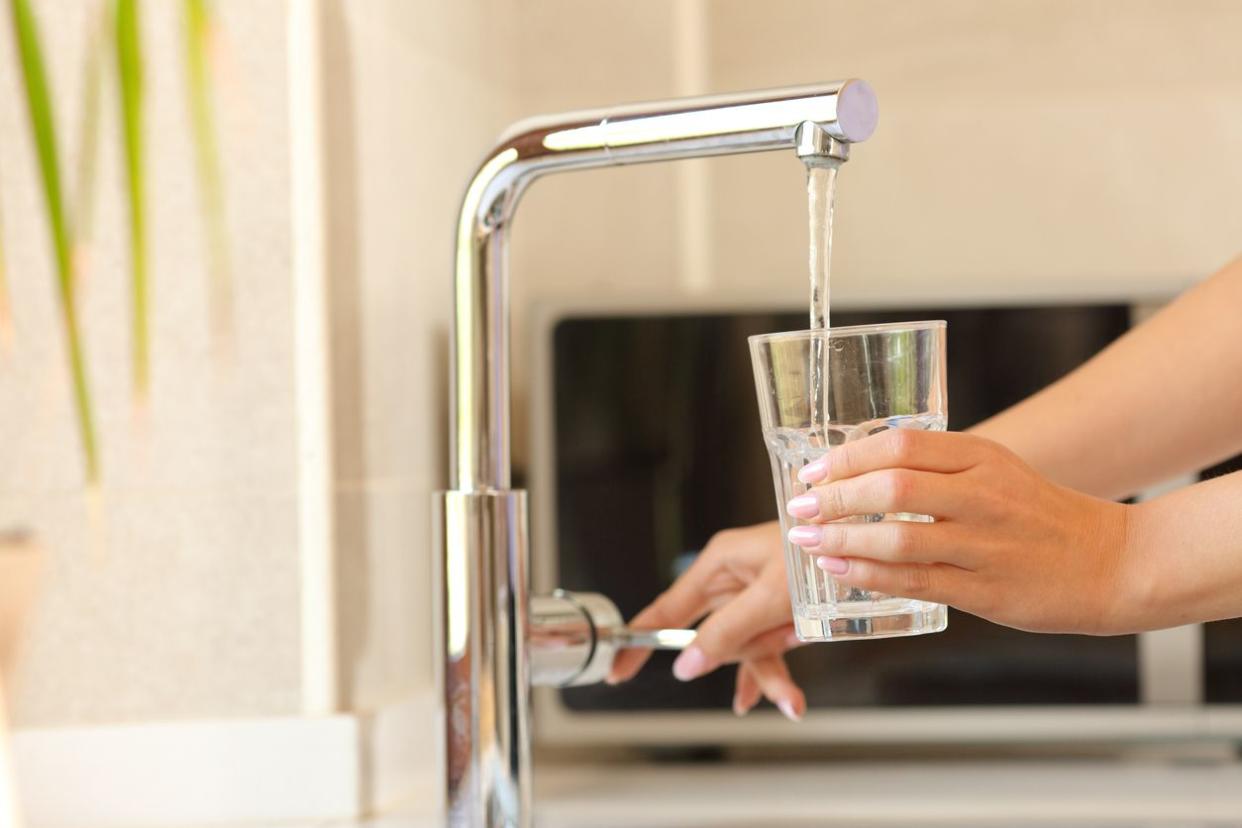
Water may increase the rate of lipolysis — the breakdown of fat for energy in your body.
It becomes easier for your body to break down the fat in free fatty acids and transport it into mitochondria, which turn nutrients into energy in your cells. This means drinking water may increase fat oxidation, when your body burns fat for fuel.
AntonioGuillem/istockphoto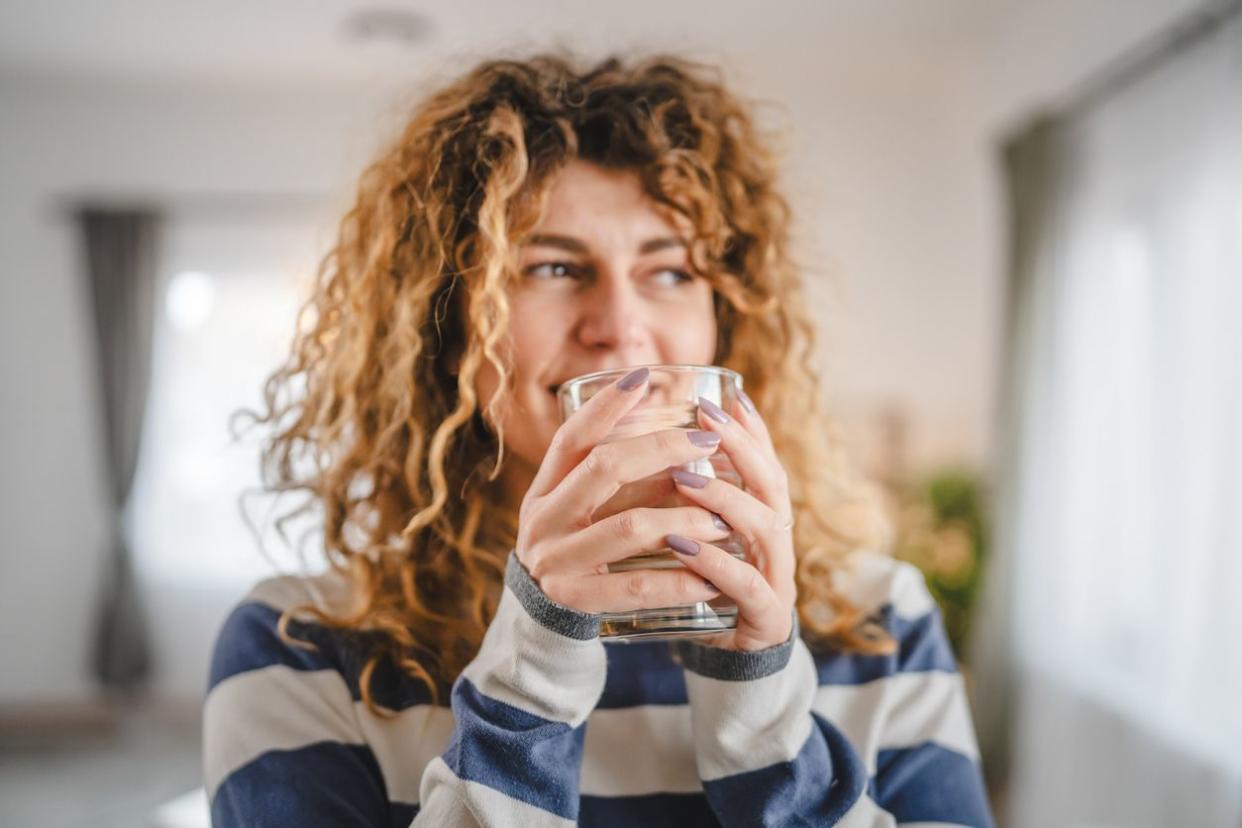
This one’s pretty straightforward. When you’re drinking water, you’re not drinking soft drinks, sugar-laden fruit juices or alcoholic beverages that can contribute to weight gain.
Swapping your usual lunchtime Coke and after-dinner beer for a glass of water is a simple change that cuts calories before you even think about overhauling your diet.
Plus, if you stay hydrated with zero-calorie water, you’re less likely to reach for a high-calorie, sugary drink to quench your thirst.
(Related: Are Diabetes Drugs Safe for Weight Loss?)
:Miljan Živković/istockphoto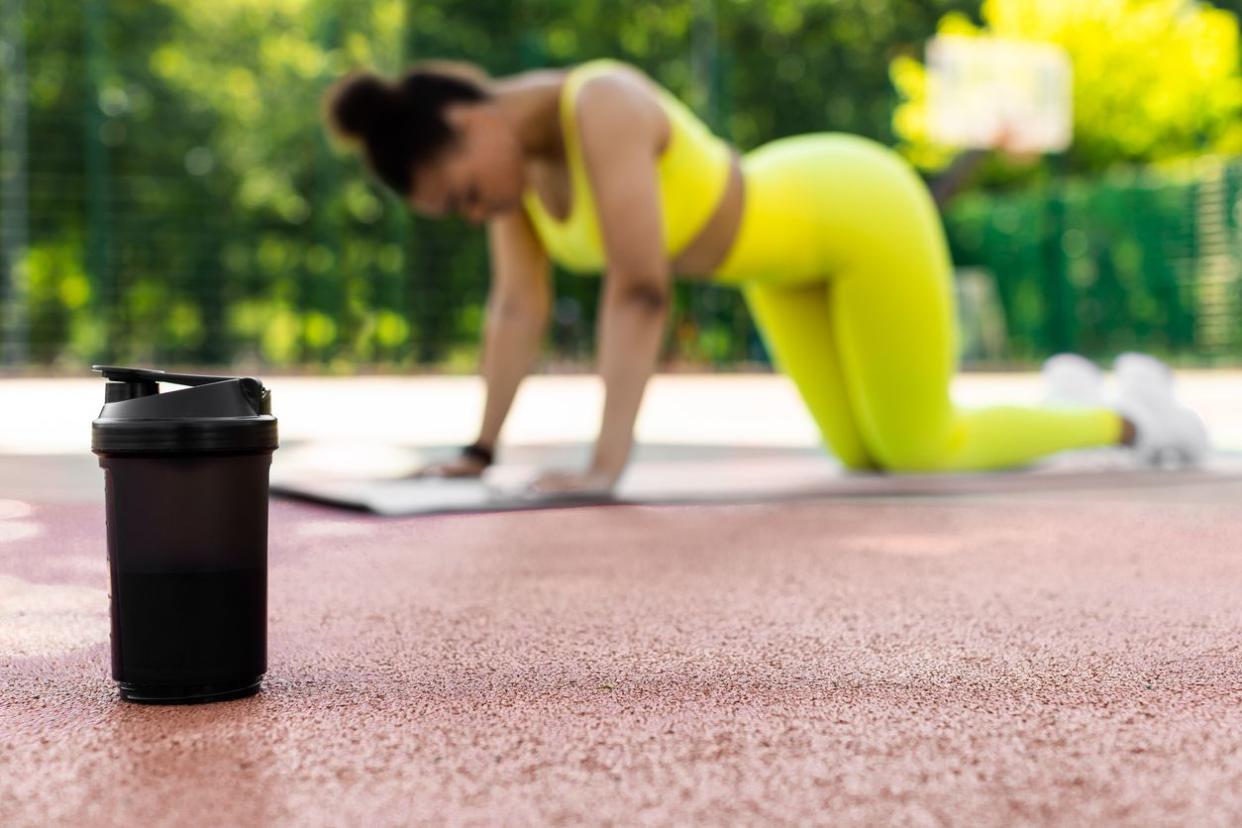
You might be upping your physical activity if you’re trying to shed a few pounds. Drinking water can help make this lifestyle change easier.
Even mild dehydration can lead to:
Reduced endurance
Reduced motivation
Increased fatigue
Increased perceived effort — your workouts feel harder
Drinking enough water can reverse these effects and reduce the oxidative stress that exercise can cause.
When working up a sweat, you’ll lose more water than usual. So it’s even more important to keep a water bottle nearby and make sure you’re sippin’ on it throughout your workout.
Prostock-Studio/istockphoto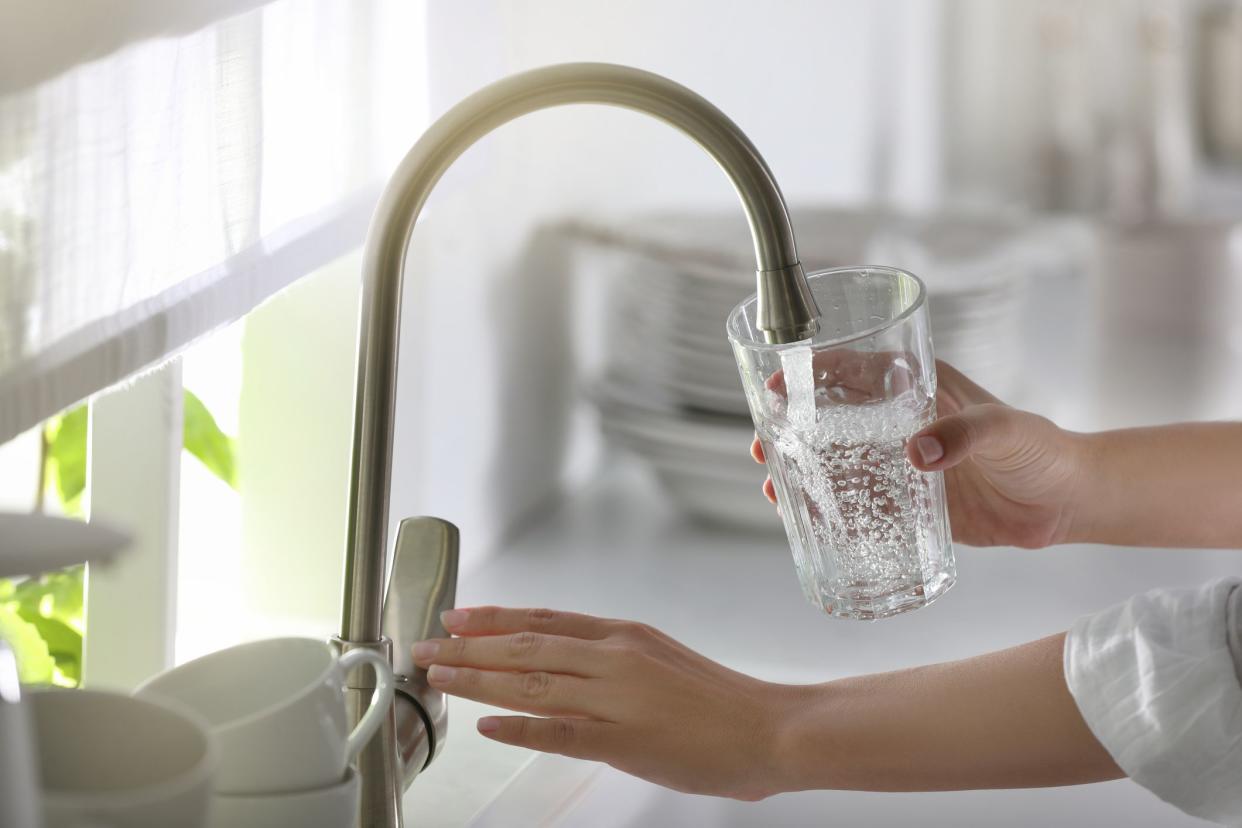
You may have heard you should aim for eight glasses of water a day for optimal health. But there’s actually no hard-and-fast rule about how much water you should drink — and that’s even more true when it comes to water for weight loss.
The National Academies of Sciences, Engineering and Medicine recommends about 91 ounces of water a day for women and 125 ounces for men. However, this is total fluid intake from food and drinks — not just glasses of water alone.
Also, it’s not the same for everyone. How much water you need to lose weight depends on factors like your daily activity levels and how hot it is where you live.
And that’s just thinking about water for general health and well-being. How much water you should drink to lose weight might be whatever’s necessary to suppress appetite and reduce calorie intake — or it could all be about timing (i.e., upping your water intake before meals).
More research is needed on that front.
For now, we say don’t worry too much about how much water a day for weight loss is best. Our advice is to drink when you feel thirsty, check that your pee is clear or light yellow (dark yellow signals dehydration) and consider drinking a little extra before meals to see if it affects your hunger and meal satisfaction.
Liudmila Chernetska/iStock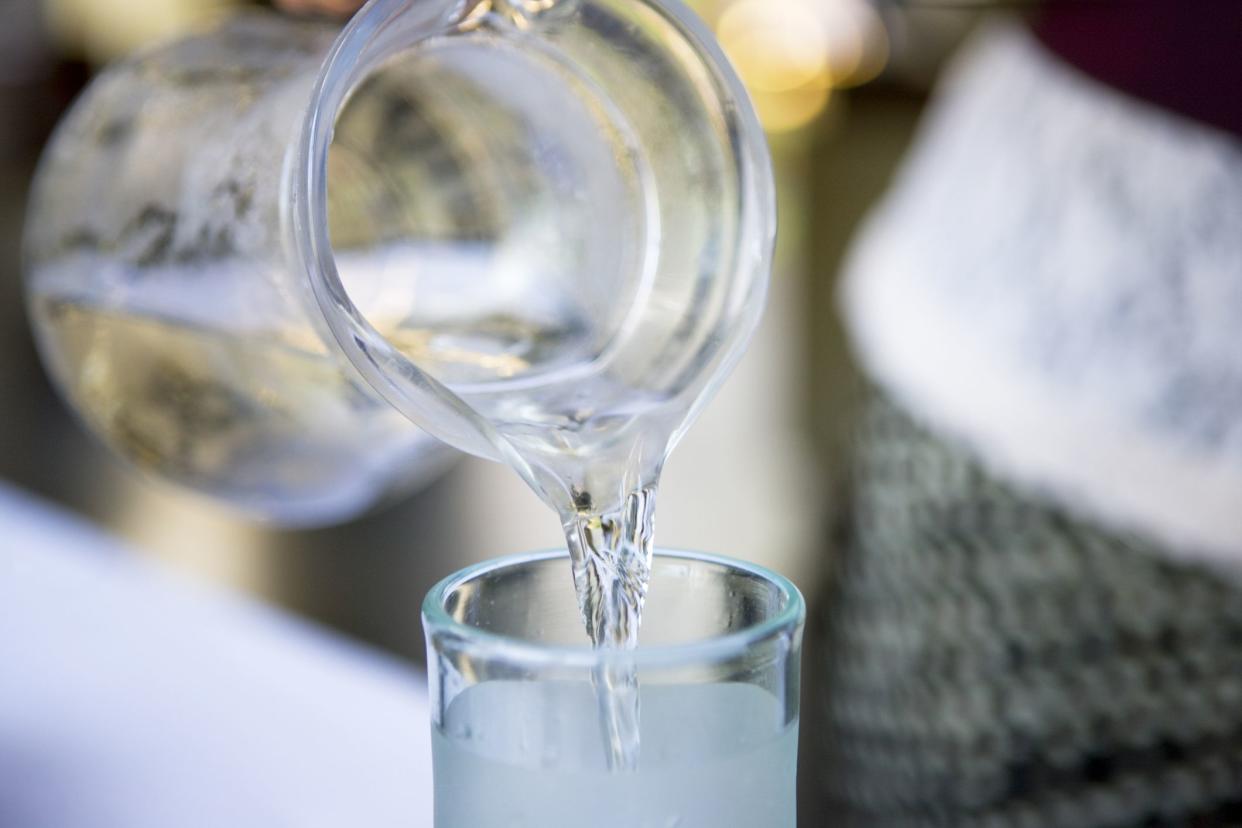
There’s no one best time to drink water for weight loss. That said, research suggests that drinking water before meals could help you eat fewer calories by:
Reducing hunger
Increasing satiety (feeling full)
Try drinking 17 ounces — about a pint glass — of water 30 minutes before meals.
A 2010 study compared eating a low-calorie diet and drinking 17 ounces of water before meals to eating just a low-calorie diet alone. Participants who drank extra water lost over four pounds more than the other group. This resulted in a 44 percent greater decline in weight over the 12-week study.
Outside of meal times, drink plenty of water throughout the day. And avoid waiting until just before bed to get in your daily water intake — otherwise, you’ll be setting yourself up for many middle-of-the-night bathroom trips.
webphotographeer/istockphoto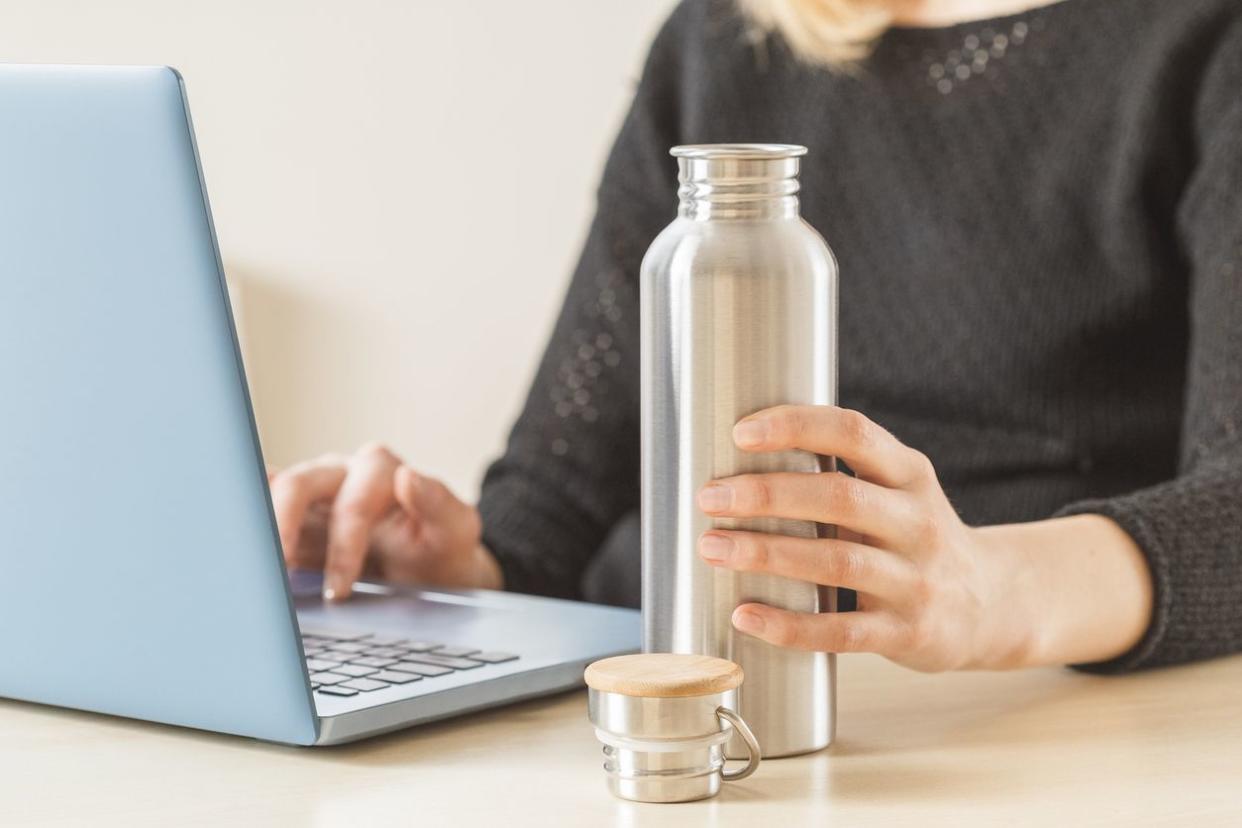
Now that we’ve established that drinking more water could help you lose weight, it’s time to start drinking up.
Here are our tips to increase your water intake:
Carry a water bottle with you everywhere — bonus points if it’s a reusable bottle you enjoy using.
Add a slice of lemon, lime or cucumber to your water if you don’t like the taste of it plain.
Drink water with meals — make it a non-negotiable on your dinner table.
Freeze bottles of water or add ice cubes to your glass to enjoy cold water.
Have a glass or bottle of water on your desk, next to the couch, in your gym bag, etc. Sometimes, you just need the visual cue to drink up.
Set reminders on your phone, download a water-drinking app (yep, those exist) or leave a Post-It note on your bathroom mirror.
Can you lose weight by drinking water? Sure. But water is just one piece of the weight loss puzzle.
Healthy diet, exercise, stress management and adequate sleep are all key to sustainable weight loss. If you decide to up your water intake, don’t forget about the basics.
If you’re looking to lose weight, here’s what you can try alongside drinking more water:
Reducing calories that come from fats and sugars
Increasing fruits and veggies
Eating a variety of lean protein
Getting at least seven hours of shut-eye a night
Getting two and a half hours of exercise throughout the week (or about a half-hour five days a week)
Chat with a healthcare professional for more personalized advice on your weight loss goals. Drinking water may be part of the strategy, but a meal plan, exercise routine, behavioral change tools or weight loss medication could also be useful.
AnSyvanych/istockphoto
Does drinking more water help you lose weight? As it turns out, yes, it can. But weight loss isn’t the only benefit of drinking more water.
Water can help boost:
Mental performance and energy. When dehydrated, you may find it harder to concentrate and stay alert. Your short-term memory could take a hit too.
Physical performance. Dehydration can lead to reduced endurance, fatigue and increased perceived effort — not what you want when working out.
Overall health and wellness. Adequate hydration can reduce your chances of kidney stones, constipation, exercise asthma, urinary tract infections (UTIs), high blood pressure and possibly fatal coronary heart disease. It might also lower your risk of developing a headache. Water can even help your hair grow.
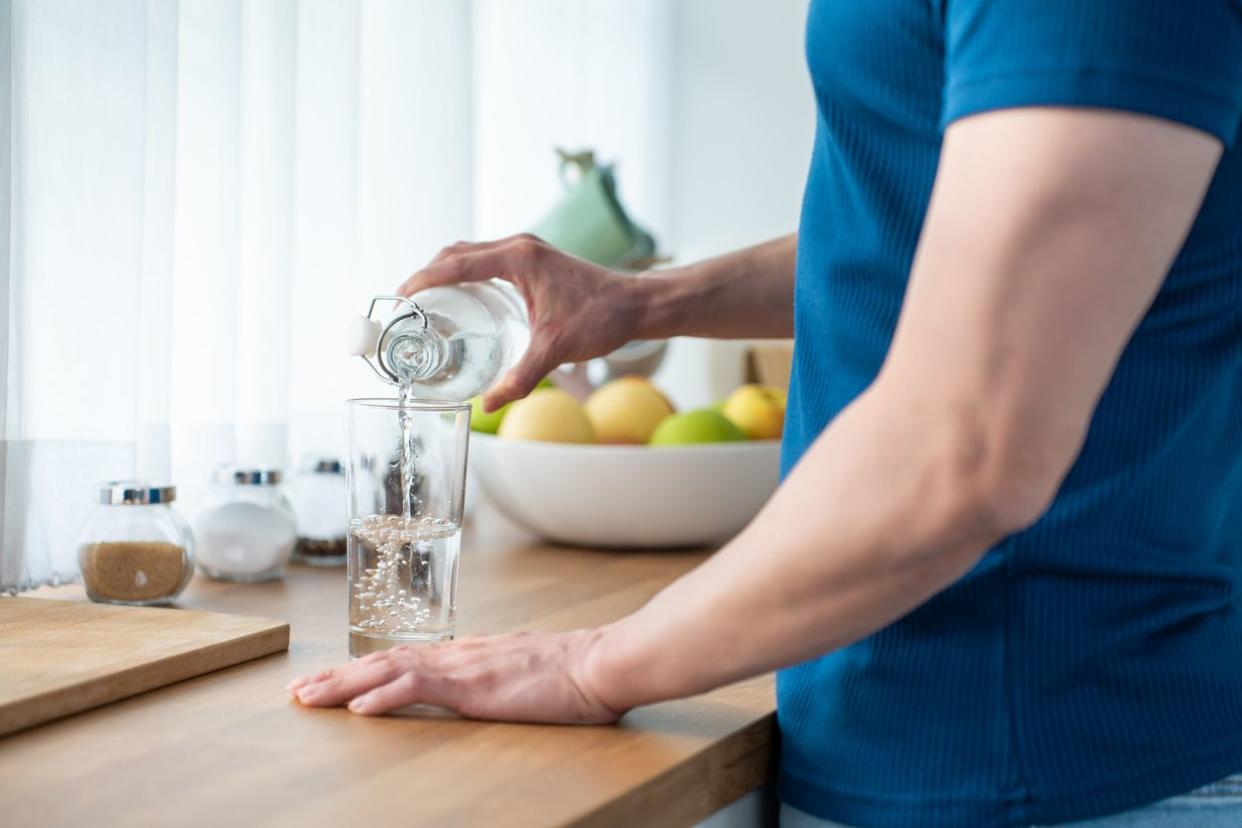
The rumors are true: Drinking water can help you lose weight.
Here’s what you need to know:
Drinking water has multiple benefits. It can reduce hunger, boost metabolism and increase fat oxidation while helping you stick to a workout plan. You might find you’re eating (and drinking) fewer calories when you start upping your water intake.
Drinking water before meals could help you eat less. A rigid water-consumption schedule may not be necessary. Still, you might try a glass or two about 30 minutes before meals. It could suppress your appetite, help you avoid overeating and make you feel more satisfied.
Don’t forget other essential factors for weight loss. If you’re drinking water to lose weight, don’t neglect diet, exercise, stress management and sleep. Weight loss often requires a multi-pronged approach. Don’t be afraid to reach out to a medical professional, dietitian or behavioral therapist for support and guidance.
It seems that good ol’ H2O can help you on your weight loss journey, but other weight loss treatments are out there. We recommend exploring your options to see what techniques might work and following the advice of a healthcare professional.
This article originally appeared on Hers.comand was syndicated by MediaFeed.org.
